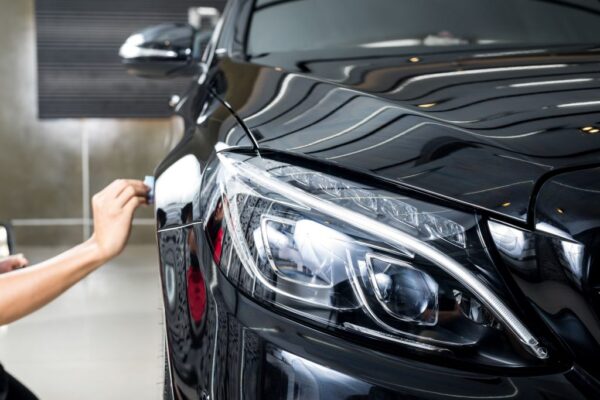 The challenge
The challenge
This major Original Equipment Manufacturer produces vehicles with a large number of customer facing options and extras; a high complexity product with a particularly high degree of variation. Facing issues with quality, cost and productivity (needing to effectively balance cycle times to customer demand), the manufacturer sought to put an ambitious programme into action.
This would deliver what they called a ‘Stable TAKT’ program across its entire UK assembly hall ahead of the launch of a new car model. The programme’s KPIs had been set to challenge the business in preparation for a new vehicle launch, but a number of significant gaps had been identified in the manufacturer’s ability and skill set to facilitate and deliver the program. The assembly unit was not realising the expected benefits or delivering the expected results.
The production line had a low level of efficiency as in order to deliver a fully flexible production plan with the ability to build any vehicle specification at any time and in any quantity, more team members were deployed on the line. However, these additional people would then be left under-utilised or sometimes idle, when vehicles of a lower specification, and shorter cycle time, were being built.
The lack of a balanced workload had also increased the risk of poor quality – additional team members had been deployed to check and inspect vehicles at planned intervals. This was detrimental to the efficiency of the production line.
In order to maintain a Stable TAKT time across the production line, cycle time variation needed to be balanced against customer demand (or TAKT time). This would require a higher degree of flexibility being built into a redesigned process, that would raise efficiency to the desired level. By building quality into the process, check and inspection points could be reduced which would further increase efficiency.
To help the organisation bridge the gaps in capability and skill, the manufacturer identified the need to partner with an experienced organisation that could bring expertise in TAKT/cycle times, understand and integrate processes, drive out waste and identify and trial new ideas without endangering quality. The potential partner needed to be able to engage with management and production teams in a practical way, as well as transfer capability so that improvements could be sustained and built on for the future.
Many of these requirements are key features of Unipart’s world-class body of knowledge – ‘The Unipart Way’. Together with Unipart’s manufacturing expertise, and coaches skilled in capability transfer and delivering sustainable change, Unipart were recognised as best fit to deliver the projects benefits:
- The customer sought to make 70% of vehicle cycle times stable to between 90% and 100% utilisation
- Deliver annual savings of at least £2.5m
- At least a 60% reduction in the number of quality issues
How we helped
Unipart Consultancy worked alongside the customer to develop their ‘Stable TAKT’ model and integrate this into their production system. This approach involved an analysis of the current process, developing idea generation from front line teams, testing ideas with offline trials and simulations, training of team members and team leaders, integrating and embedding process change and sharing new best practice across the assembly line.
Of key importance were the offline test areas that were created for testing and simulation away from the live assembly line. Here, cross-functional teams could work together with a Unipart coach to generate and test new ideas and produce practical solutions.
By splitting the assembly hall into ‘modules’, with a Unipart coach assigned to each, it became easier to manage and communicate out process changes and identify when and where these changes might impact upon downstream processes in other production ‘modules’.
The cross-functional team in each ‘module’ were monitored for their performance towards the project targets, and a spirit of competition was created that helped drive teams to create further improvements.
Following the conclusion of the initial project, the Unipart coaches worked with the site teams to ensure that learning and knowledge sharing continued and that the improvements were sustained.
Benefits
The project was successful to the degree that the global manufacturer saw fit to roll out the changes, developed as outputs of the Stable TAKT project within this production facility, as best practice in its global production system.
All areas were able to realise significant benefits:
- 0% over utilisation of assembly operations on all key models (no cycle-times were exceeded and the assembly line TAKT time was maintained)
- Savings exceeded target with over £4.5m from across the assembly hall (from resource efficiency, rework reduction and elimination of unnecessary checking and inspection)
- A minimum of 70% of all vehicle cycle times were operating between 90% and 100% utilisation
- A fully flexible production system was in place to deliver all variations of vehicle
- Capability of learning and training transferred directly to operational teams
- Business in readiness for new vehicle launch
- Global recognition and accreditation of success from the customer